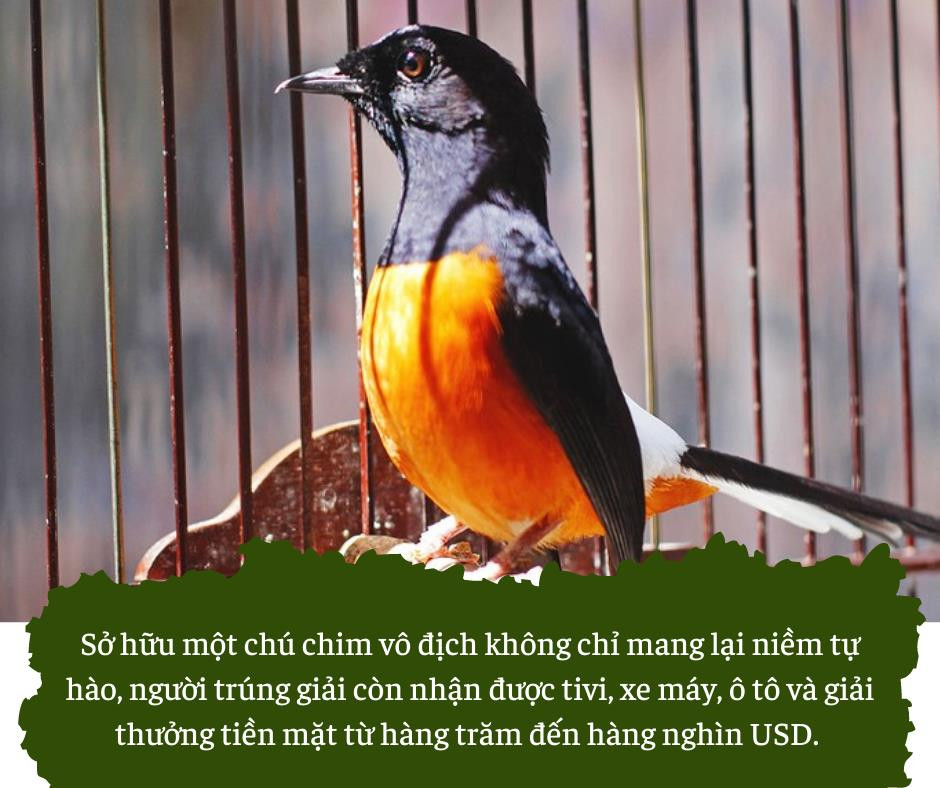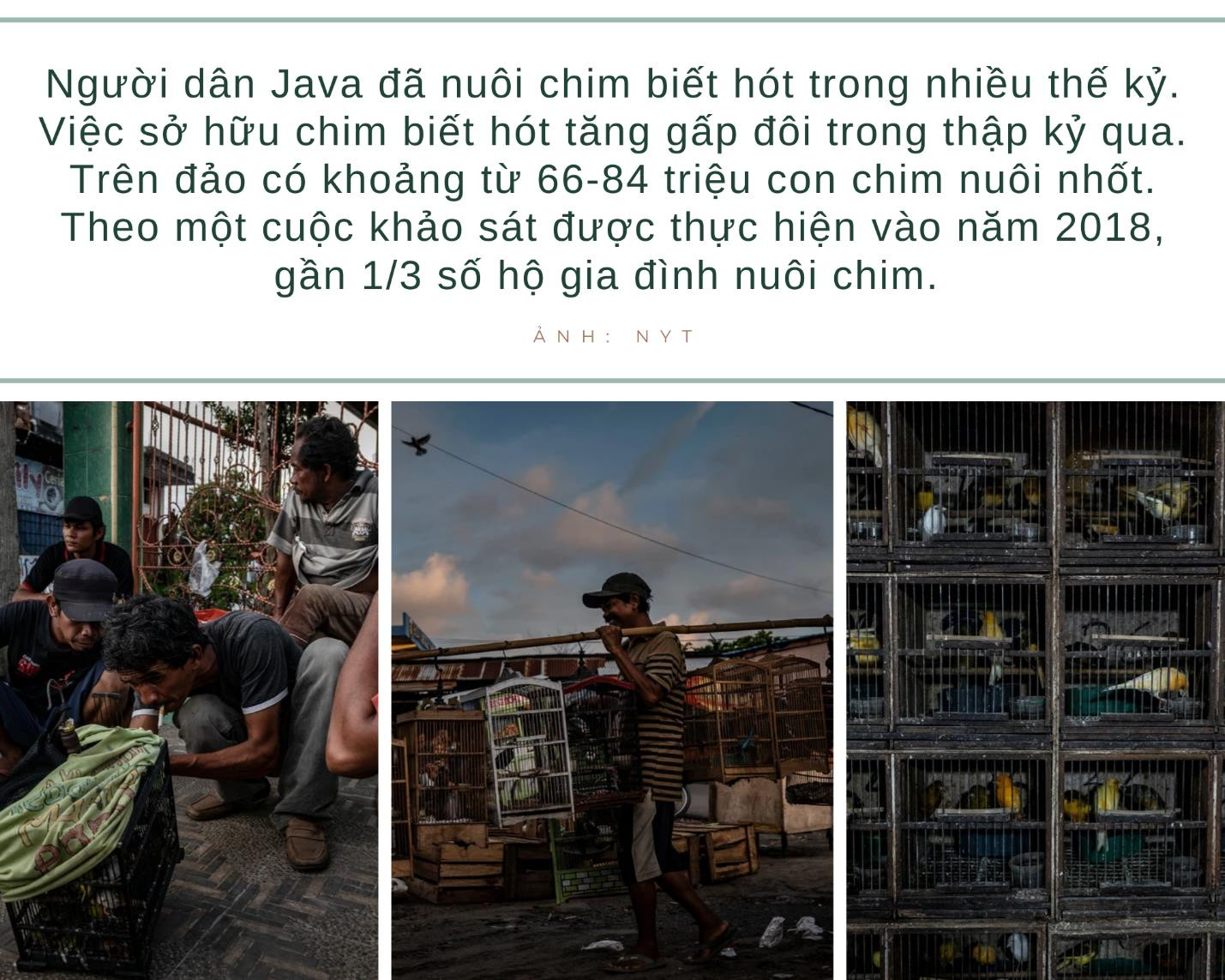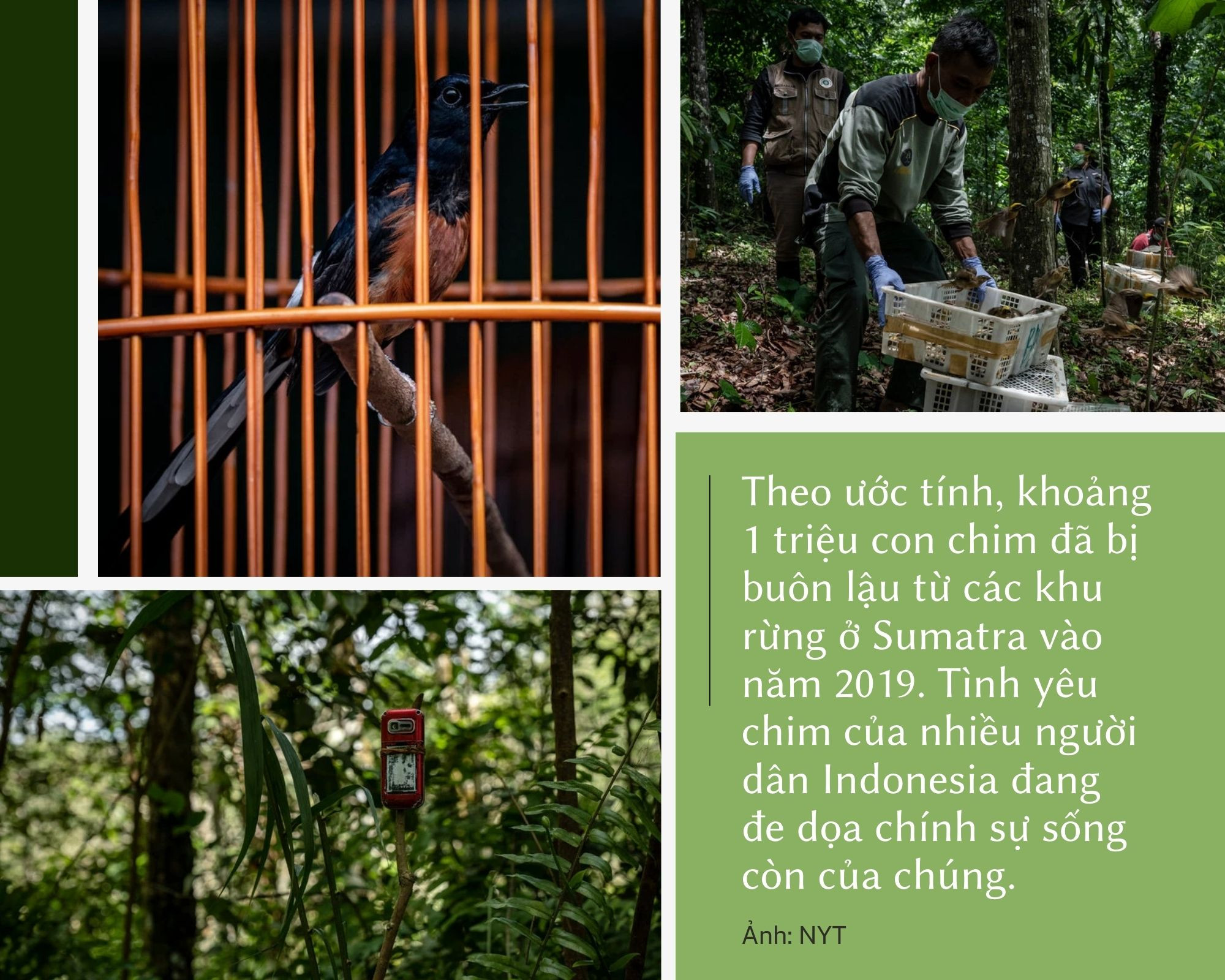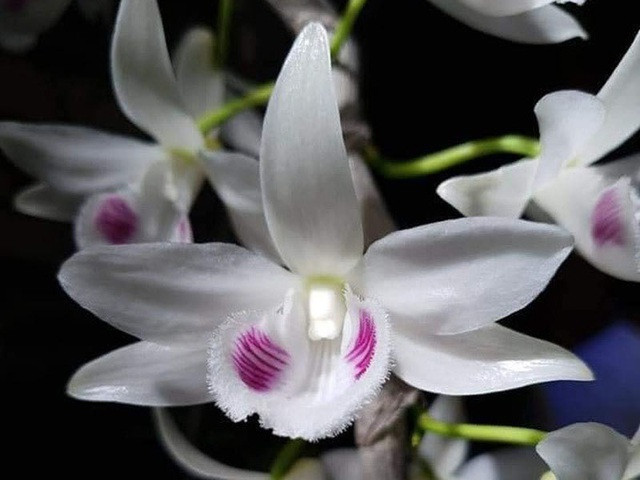Indonesia broke out in a bird fever

Some men spend the weekend watching football, others like Imam Safi’I watch the songbirds. Every year, a lot of bird competitions take place all over Indonesia. Before large gatherings were postponed in March 2020 because of the Covid-19 pandemic, more than 1,000 songbird competitions were held each year, mainly in Java. Many competitions have attracted thousands of participants with many valuable prizes.
Most weekends, Mr. Imam and friends attend matches in the capital Jakarta to cheer on his favorite birds. Referees are the ones who determine the winner and loser between the birds. They assessed the complexity and vibrancy of their voices, as well as their stamina and posture as they flew around the cage.
Owning a champion bird not only brings pride, winners also receive televisions, motorbikes, cars and cash prizes ranging from hundreds to thousands of dollars.
Over the past four years, Mr. Imam’s magpie Ethes has won titles and enriched its owner with 15 million rupiah ($1,000), half the average annual salary. Mr. Imam attributes the bird’s success to love, care and good nutrition. He said that caring for songbirds is like caring for children.
Paul Jepson of Oxford University said Indonesians see songbirds as a “social and financial asset”. Such bird competitions are an opportunity for them to network and also a reason for friends to meet each other.
Mr Imam said the tournaments were “heavy” and “a great time”, especially when Ethes wasn’t playing. Watching birds compete is like weekend entertainment, helping to relieve stress. Men of all ages participate. Even Indonesian President Joko Widodo once brought his white-tailed warbler to a competition.

At the end of January 2020, thousands of bird enthusiasts, mostly men, flocked to the park to attend the South Jakarta Police Chiefs Cup.
Sixty individual competitions, organized by species and level of competition, took place in two open booths. Up to 77 birds participate in each event. The top prize is 715 USD.
Bird competitions like these are not like listening to birds sing in the quiet woods but more like a boxing match. After hanging the birdcage, the owners stand behind a fence a few meters away and scream loudly to conjure up good tunes for their birds. And it’s amazing how the judges can hear each bird in such a competition.
The winner of that contest was a white-tailed warbler from Andika Asa, a breeder who won a prize of $430. After leaving the competition, one person offered to buy Andika’s bird for $8,000, but he refused. He reckons it costs twice that.
Andika, 40, a former university manager, said he bred the bird himself and spent a lot of time training his champion.
To train the bird’s stamina, he and his son bang on the sides of the cage to make it fly 500 times a day, Andika said. He also brought in “master birds” of other species so that they learned their tunes.

The people of Java, Indonesia’s most populous island, have kept songbirds for centuries. The songbirds are the symbol of the Javanese knight. But it wasn’t until the 1980s and 1990s that contests began to gain popularity.
Enthusiasts began to replace imported zebra pigeons with unchanged vocalizations with trainable native sparrows. This has opened up tournaments to anyone with the time and patience to train their birds.
Ownership of songbirds in Java has doubled in the past decade. There are about 66-84 million captive birds on the island. According to a survey conducted in 2018, almost a third of households have birds.
Bird owners have been unable to keep up with the increased demand. Meanwhile, wild birds are prized for their superior singing. Many species of birds have been poached from the forests of Indonesia, putting more than a dozen species at risk of extinction.

Hiding in the jungles of Sumatra, the poacher chooses a thin branch, covered with homemade glue, and plays a bird song from an old phone. In a moment, 3 small birds landed on the branch and got stuck there.
They are ash gray warbler, living on the Indonesian island of Java. But this is also where they may end up spending their entire lives in a bird collector’s cage.
Millions of giant birds are hunted from the wild every year. Highly prized precious birds will be able to sell for thousands of dollars. They are precious birds not because of their plumage or meat, but because of their singing.
Hunting and illegal trade from the primeval forests brings many species of birds to the capital Jakarta. Here, they are invited to participate in singing competitions with great prizes regularly chaired by officials.
Poacher Afrizal gently pulled the birds from the branches, peeled off the glue from their feet, and placed them in a metal cage, on which he covered a faded “Angry Birds” T-shirt. This is how Afrizal does its part to capture Indonesia’s wildlife. He has caught more than 200,000 songbirds in the past 15 years.
He said: “I do this job for a living. Of course, I feel guilty. If they die, I feel even more sad.”

Officials and conservationists say wild songbirds are disappearing at an alarming rate across Indonesia’s vast archipelago. The growing craze of songbird competitions fuels much of the current demand.
As mentioned above, keeping songbirds in cages is a long tradition of the rich and powerful Javanese men. But bird competitions have become a popular phenomenon with many classes, which has led to an increase in bird ownership. Large events that gather thousands of people are often held in the name of leaders and officials.
Behind the songbird competitions, however, lies a booming nefarious business. The most hunted bird is the murai batu, also known as the white-tailed warbler. They can imitate the tunes of other species. This warbler is popular with collectors and is rapidly disappearing from the forests of Indonesia.
In 2018, Mr. Joko’s white-tailed warbler reached the final of the President’s Cup, but lost to Dede Alamsyah, a car wash owner from Central Java.
The president told reporters that he had offered to buy the winning bird, but Mr. Dede had refused to sell. Mr. Dede put the price of the bird at $47,000, enough to buy a big house.
Marison Guciano, founder and chief executive officer of bird protection organization Flight, estimates that poachers catch more than 20 million songbirds each year, mainly from Sumatra, Indonesia’s third-largest island.

Capturing songbirds has grown as a backyard industry. At the 2018 contest, Mr. Joko praised the livestock business as a boon for “people’s economy”. The president, who has released dozens of birds bought from the market, said the sale of birds, cages, food and medicine generates $120 million a year.
But catching wild birds, although often illegal, is cheaper than raising them. Many people trade unscrupulously, using prosthetic straps and fake credentials, Mr. Marison said. They trade in wild birds and treat them like birds they have bred themselves.
Mr. Marison said the songbird smuggling was rampant and public. That has become the norm in Indonesia. Money laundering takes place right in front of everyone’s eyes.
As the number of songbirds in Sumatra has decreased, poachers have started hunting in the forests of Malaysia and southern Thailand, especially the white-tailed warbler, Mr. Marison said.
Indonesian law enforcement officials admit that some members of the police and military are involved in the illegal trade and help smugglers transport birds.
Hifzon Zawahiri, Chief of the National Wildlife Refuge in Lampung, Sumatra’s southernmost province, said his agency faces an organized bird-smuggling crime.

Legal loopholes and patchy enforcement have been exploited by pet bird traffickers. According to one estimate, about 1 million birds were smuggled from the forests of Sumatra, a large Indonesian island, in 2019. Indonesia’s love of songbirds threatens the very survival of these tiny birds. .
The Indonesian government has become aware of the problem of wildlife smuggling and banned the trade in protected birds. In 2018, hundreds of bird species, including songbirds like the white-tailed warbler, were included on that list.
Theoretically, owners of the birds would have to prove provenance before taking the birds to singing competitions. But Mr. Marison says that regulation is rarely enforced. Many other species listed as protected will find their way into other Indonesian bird markets.
With songbird populations in the wild dwindling, Mr. Marison has called on the government to prioritize their protection. The first step, he said, would be to close down bird markets, ranging from small operations like roadside stalls to Jakarta’s sprawling Pramuka market, the largest bird market in Southeast Asia.
“Keeping these birds is not beneficial to the ecosystem or to the safety of the birds. It is just for the entertainment of the owners,” he said.
(According to Economic Lifestyle)

Many landscape biology experts are concerned about the virtual fever of the orchid market and whether mutant orchids will go into the footsteps of ornamental birds and ornamental plants for a while?
at Blogtuan.info – Source: vietnamnet.vn – Read the original article here



